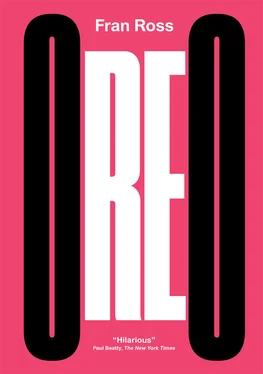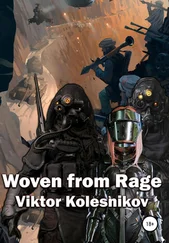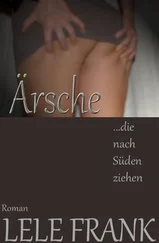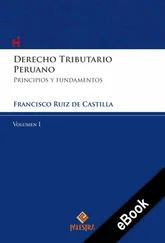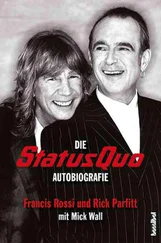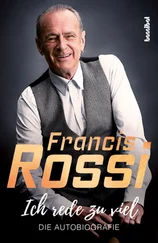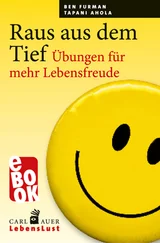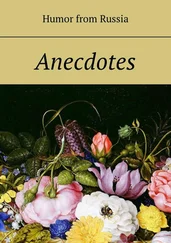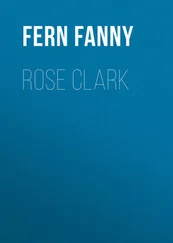After the lesson, the professor excused himself and went to the bathroom. When he returned, he said, “Now that I have sifted out, I shall not go into a long wearing away. I shall merely give you a big comfort and take my leave.” He hugged Oreo.
“Good-bye, professor.”
“God be with ye, Oreo.”
Oreo’s good-byes to her family
The family farewells took three days because Louise needed the time to prepare a box lunch for her granddaughter to take on her journey perilous. The peroration of those good-byes went as follows.
Oreo said good-bye to her grandfather first, since that would take the shortest amount of time. “Good-bye, Grandfather,” she said, kissing him on the cheek.
James, who had been grinning a second before, stopped grinning. There was a vacant stare on his face. This often happened and signaled the fact that he was giving his facial muscles a rest.
Oreo went next to Louise. “You look real nice, chile. Yo’ white dress is spotless — you might eem say maculin.” Louise dragged over Oreo’s box lunch — more accurately, her duffel-bag lunch, since that was what it was in. They could not find a box big enough for all the food Louise had prepared.
Oreo strapped the lunch to her backpack frame. Since the food took up so much space, Oreo had to repack the other equipment she was taking on her journey. She soon grew tired of shifting it around, said, “Oh, the hell with it,” and shoved it into the duffel bag next to the lunch. It was a toothbrush, but difficult to pack because its interproximal stimulator, or rubber tip, and its bristles faced in opposite directions. Oreo kissed Louise. “Good-bye, Grandmother.”
Louise kissed her. “’Bye, Oreo.”
Jimmie C. made a long speech in cha-key-key-wah, telling Oreo how much he loved her and promising not to be a yold . Then he said, “I know you won’t be gone for a spavol time, but”—and he sang this—“nevertheless and winnie-the-pooh, verily, I’m going to miss you.” His voice had changed with age. His sweet countertenor was now a sweet boy soprano.
She kissed him on both cheeks. “Good-bye, Jimmie C.”
“Vladi, Oreo.”
When Helen embraced Oreo, she did not say anything, but her head equation, brought on by Jimmie C.’s keening in the background, was a simple
L = P + GD
where L = leavetaking, mph
P = pain, ppm
G = gevalts , cwt
D = davening , pf
“Good-bye, Oreo,” Helen said when her equation was over. She was doubly sad, since she too would soon be leaving, to go on the road again.
“Good-bye, Mother.”
Suddenly there was a sound like the primal rasp of a rusty hinge on a long unopened door — the pearly gates, perhaps. “Now, as I was saying…,” James croaked in his disused voice.
The whole family was stunned. They gaped at James in amazement. He was not aware of it now, but a few moments earlier all the good-byes had led him to believe that he was being abandoned. The shock of this fearful defection had quickened his broken blood vessel, which reached out across the vascular gap like a severed snake, probing the brain’s topography for its other half. It made a slipknot around the break as a temporary measure until it could repair itself permanently. His anterograde amnesia disappeared. He stood up with a crisp popping and cracking of joints, the sound of Louise snapping gigantic green beans. His half swastika straightened into a ramrod.
His wife and daughter embraced him joyously, and he was reintroduced to his grandchildren for perhaps the umpty-third time.
“Well, I hate to greet and run…,” Oreo began. She had no shame.
When Oreo’s impending journey was explained to him, a shudder ran through him at the mention of Samuel’s name. But the slipknot in his brain held fast. James was somewhat consoled when he was told that Samuel and Helen had been divorced for years. Helen promised to postpone going on her road trip for a few days in order to help Louise catch James up on all that he had missed during his years of amnesia. She had come to love the road, but once James was fully recovered and making money again, she could make shorter swings and come home more often.
Louise timidly approached her husband. “Do de name Will Farmer ring a gong?” she asked.
James thought a while, shook his head. “No, can’t say that it does. Do I know him?”
“No, and I don’ neither,” she said, a glaze coming over her eyes as she lied in her teeth. “De name jus’ come to me in a dream. I was dreaming ’bout one dem horny-back Baptist churches.”
“You mean hard-shell,” James said.
“Yeah, one dem. Anyway, a man was rollin’ in de aisles, and de preacher say, ‘You bet’ come on out cho ack, Will Farmer.’ Jus’ thought you might recomember ’body by dat name.”
James put a strain on his slipknot trying to figure out why he should know someone in Louise’s dream, but he shook it off and went on to other things. “Helen, what do you think of this idea? I was thinking of making a special mailing to all the homes for used Jews and—”
“You mean old folks’ homes?” asked Helen.
“Naturally. Well, I was thinking—”
Oreo interrupted to initiate a final round of good-byes, then slipped out the door as unobtrusively as she could, considering her backpack.
Betty the nymphomaniac tore herself away from her father long enough to wave good-bye from her bedroom window and shout, “Don’t forget those dirty postcards you promised me!”
“Vladi, vladi,” Jimmie C. called wistfully from the front porch until she was out of sight.
And Oreo was on her way.
On the subway-elevated to Thirtieth Street Station
Oreo did what she always did on subways. She speculated or she compared. She speculated on how many people in, say, Denver, Colorado, were at that very moment making love. How many people in Cincinnati were having their teeth filled? As the El passed the Arena and the gilded dome of Provident Mutual’s clock tower, in a mad rush to become a true subway with its plunge into the Fortieth Street stop, Oreo wondered how many people in Honolulu were scratching themselves. Was the number of people taking books out of the library in Duluth higher than one-tenth of one percent of the city’s car owners? she mused. And what about the ratio of nose picking per thousand population in Portland, Oregon — or Portland, Maine, for that matter?
When she had tired of speculating, she went on to comparing. She looked up and down both sides of the car. On her first sweep, she concentrated on the size and shape of all the noses she could see. She awarded appropriate but valueless (imaginary) prizes to the possessors of the largest, smallest, and most unusual. A man wearing an astrakhan cap won the prize for the largest, with a nose big enough to accommodate nostrils that put Oreo in mind of adjacent plane hangars, fur-lined. His prize: free monthly vacuuming with a yet-to-be-invented nose Hoover. Modeling clay, the prize for the smallest nose, went to a redheaded woman with the nose of an ant. A hand passing from the redhead’s formicine brow to her mouth would have to make no humanoid detours around cartilaginous prominences. Most unusual was the cross-eyed young man whose nose pointed to his left ear. Picasso réchauffé . His prize wasn’t really his. It was a blindfold for others to wear in his presence.
Before she could go on to hands and shoes, Oreo got a seat. Sitting on the edge of the seat because of her backpack, she felt at the neck of her dress to make sure the mezuzah was still in place. She loosened the drawstring of her black handbag (the kind that looks like a horse’s feed bag), pushed aside the bed socks her father had left her, and took out the coffee-stained list of clues.
Читать дальше
